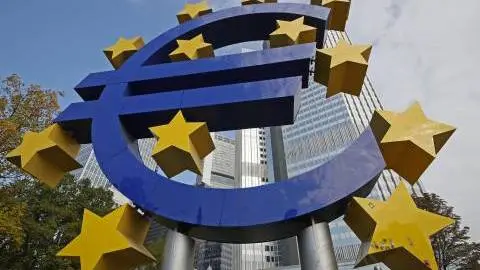Higher Bund yields: The relative resilience of Emerging Market sovereigns
Emerging Market sovereign bonds have shrugged off the troubles of their eurozone peers. But rising Bund yields weigh on appetite for longer maturity bonds while rich relative valuations could pressure spreads in the near term. That said, the longer-term outlook remains favourable
EM sovereign spreads shrug off eurozone troubles
Rising core rates have weighed on total returns for Emerging Market sovereign hard currency bonds this year. Here, EM EUR sovereign bonds (-1.8% YTD total return based on Bloomberg Barclays EM Pan Euro Aggregate: Sovereign Index) have fared somewhat better than their USD peers (-2.8% for Bloomberg Barclays EM Sovereign Index Unhedged EUR) due to the more modest rise in German Bund yields vs US Treasuries and a shorter duration of the EM EUR sovereign space (modified duration of 7.9yrs vs 8.8yrs for the respective indices).
Appetite for EM debt remains strong
However, appetite for EM debt remains strong, with the Institute of International Finance (IIF) reporting US$87bn of portfolio flows between January and April this year. This has supported EM EUR sovereign credit spreads which have largely shrugged off the recent rise in Bund yields and the sell-off in eurozone government bonds (EGBs) with the EM Pan Euro Aggregate: Sovereign Index spread having narrowed by 7bp year-to-date.
Importantly, two key drivers behind the recent EGB sell-off have played less of a role for EM, notably the uncertainty about PEPP which should only weigh on eligible eurozone bonds and secondly, primary market supply which picked up in April but is not exceptionally high, as you can see in the chart below.
EM EUR debt issuance (€bn)
Bund curve steepening and relative valuations warrant caution but long-term outlook is favourable
That said, in client conversations, we note there is a lack of appetite for longer maturity bonds due to the curve steepening pressure in Bunds. Moreover, some EM EUR, particularly CEE bonds, screen rich in a historical relative value context against EGBs owing to the latter's underperformance, with Croatian euro-denominated sovereign bonds (CROATI) currently trading at flattish yields to Italian BTPS (vs 30/35bp wider in mid-March) and Hungarian bonds (REPHUN) trading 20-25bp inside BTPS (compared to 0bp on average over the last six months).
REPHUN bonds also trade close to all-time tights vs Portuguese PGBs (REPHUN 0.5% 30 trade 25bp wider vs PGB 0.475% 30 vs 50bp 6-month average). All in all, this could put some pressure on EM EUR spreads in the near term. With liquidity proving more challenging in EM EUR, we also see the risk of price discoveries leading to gaps in pricing.
BTPS 1.65% 30 vs REPHUN 0.5% 30
However, based on our rates strategist view that the sell-off should be front-loaded and contained (the ING view is for the 10yr Bund at 0.20% in the fourth quarter of 2021), we believe that demand for carry in EM EUR is here to stay and therefore we only expect a limited spread widening.
We also consider the fundamentals of CEE issuers, the dominant region in EM EUR, as favourable, further supported by the NextGen EU recovery fund prospects. Indeed they are serial upgrade candidates; S&P and Fitch upgraded Hungary to BBB in 2019 and Moody's Baa3 rating has a positive outlook, Croatia gained investment-grade status in 2019, and Fitch placed Bulgaria's BBB rating on a positive outlook in February.
Net primary supply (issuance minus redemptions) by CEE issuers should be limited; we expect c.€11bn equivalent in 2021 vs €21bn in 2020.
Download
Download article
20 May 2021
Higher Bund yields: The complete picture This bundle contains {bundle_entries}{/bundle_entries} articles"THINK Outside" is a collection of specially commissioned content from third-party sources, such as economic think-tanks and academic institutions, that ING deems reliable and from non-research departments within ING. ING Bank N.V. ("ING") uses these sources to expand the range of opinions you can find on the THINK website. Some of these sources are not the property of or managed by ING, and therefore ING cannot always guarantee the correctness, completeness, actuality and quality of such sources, nor the availability at any given time of the data and information provided, and ING cannot accept any liability in this respect, insofar as this is permissible pursuant to the applicable laws and regulations.
This publication does not necessarily reflect the ING house view. This publication has been prepared solely for information purposes without regard to any particular user's investment objectives, financial situation, or means. The information in the publication is not an investment recommendation and it is not investment, legal or tax advice or an offer or solicitation to purchase or sell any financial instrument. Reasonable care has been taken to ensure that this publication is not untrue or misleading when published, but ING does not represent that it is accurate or complete. ING does not accept any liability for any direct, indirect or consequential loss arising from any use of this publication. Unless otherwise stated, any views, forecasts, or estimates are solely those of the author(s), as of the date of the publication and are subject to change without notice.
The distribution of this publication may be restricted by law or regulation in different jurisdictions and persons into whose possession this publication comes should inform themselves about, and observe, such restrictions.
Copyright and database rights protection exists in this report and it may not be reproduced, distributed or published by any person for any purpose without the prior express consent of ING. All rights are reserved.
ING Bank N.V. is authorised by the Dutch Central Bank and supervised by the European Central Bank (ECB), the Dutch Central Bank (DNB) and the Dutch Authority for the Financial Markets (AFM). ING Bank N.V. is incorporated in the Netherlands (Trade Register no. 33031431 Amsterdam).
